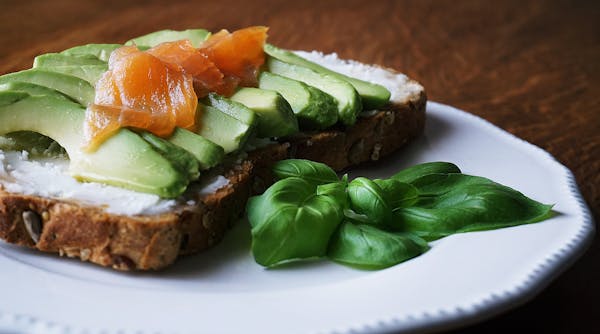Introduction
Managing both diabetes and heart disease can be a
challenging balancing act. Diet plays a crucial role in controlling blood sugar
levels and maintaining heart health, and snacks are an important part of this
strategy. Choosing the right snacks can help manage hunger, stabilize blood
glucose, and provide essential nutrients without overloading on calories or
unhealthy fats. Here are some practical and delicious snack ideas tailored for
people with diabetes and heart disease.
Understanding Nutritional Needs
Before we delve into specific snack ideas, it’s essential to
understand the dietary requirements for those managing diabetes and heart
disease:
1. Low Glycemic Index (GI): Foods with a low GI are digested
and absorbed more slowly, leading to a gradual rise in blood glucose levels.
This is crucial for managing diabetes effectively.
2. Healthy Fats: Emphasize unsaturated fats found in nuts,
seeds, avocados, and olive oil while avoiding trans fats and limiting saturated
fats to protect heart health.
3. High Fiber: Fiber helps control blood sugar levels and
can lower cholesterol. Incorporate whole grains, fruits, vegetables, and
legumes into your diet.
4. Low Sodium: Reducing sodium intake helps manage blood
pressure, a critical factor for heart disease patients.
Snack Ideas
Here are several snack ideas that meet these nutritional
criteria, offering a balance of nutrients that support both diabetes management
and heart health.
1. Nuts and Seeds
Almonds, Walnuts, and Chia Seeds
Benefits: Nuts and seeds are rich in healthy fats, fiber,
and protein. Almonds and walnuts, in particular, are excellent for heart health
due to their omega-3 fatty acids.
Serving Size: A small handful (about 1 ounce) to avoid
excessive calorie intake.
2. Fresh Vegetables with Hummus
Carrot Sticks, Bell Pepper Slices, and Cucumber Rounds
Benefits: Vegetables are low in calories and high in fiber,
vitamins, and minerals. Hummus adds protein and healthy fats without a high glycemic
impact.
Serving Size: 1 cup of veggies with 2 tablespoons of hummus.
3. Greek Yogurt with Berries
Plain Greek Yogurt and Fresh Berries (Blueberries,
Strawberries)
Benefits: Greek yogurt is high in protein and probiotics,
which are beneficial for gut health. Berries are low GI fruits rich in
antioxidants and fiber.
Serving Size: ¾ cup of yogurt with a handful of berries.
4. Apple Slices with Nut Butter
Apple Slices and Natural Peanut or Almond Butter
Benefits: Apples provide fiber and vitamins, while nut
butter offers healthy fats and protein.
Serving Size: 1 medium apple with 1-2 tablespoons of nut
butter.
5. Whole Grain Crackers with Avocado
Whole Grain Crackers and Mashed Avocado
Benefits: Whole grains provide fiber and sustained energy,
and avocado is packed with heart-healthy fats and nutrients.
Serving Size: 5-6 crackers with half an avocado.
6. Cottage Cheese with Fresh Fruit
Low-Fat Cottage Cheese and Sliced Peach or Pineapple
Benefits: Cottage cheese is a good source of protein and
calcium, and pairing it with fruit adds fiber and natural sweetness.
Serving Size: ½ cup cottage cheese with a small portion of
fruit.
7. Edamame
Steamed Edamame with a Sprinkle of Sea Salt
Benefits: Edamame is rich in plant-based protein, fiber, and
essential nutrients like iron and calcium.
Serving Size: ½ cup shelled edamame.
8. Dark Chocolate and Almonds
Dark Chocolate (70% cocoa or higher) and Almonds
Benefits: Dark chocolate in moderation is rich in
antioxidants, and almonds provide healthy fats and protein. This combination
satisfies sweet cravings healthily.
Serving Size: 1 ounce of dark chocolate with a small handful
of almonds.
Planning and Preparation Tips
1. Portion Control: Pre-portion snacks to avoid overeating.
Use small containers or snack-sized bags for easy grab-and-go options.
2. Read Labels: Check nutrition labels for added sugars,
sodium, and unhealthy fats. Choose snacks with simple, whole ingredients.
3. Stay Hydrated: Sometimes thirst is mistaken for hunger.
Drink water throughout the day to stay hydrated and support overall health.
4. Mindful Eating: Pay attention to snack times and avoid
eating out of boredom. Choose a designated time and place for snacks to promote
mindful eating habits.
Avoiding Common Pitfalls
1. Processed Snacks: Avoid highly processed snacks like
chips, candy, and baked goods that are often high in sugars, unhealthy fats,
and sodium.
2. Sugary Drinks: Beverages like soda, sweetened coffee, and
fruit juices can spike blood sugar levels. Opt for water, herbal tea, or black
coffee.
3. Artificial Sweeteners: While these can seem like a good
alternative, some studies suggest they may negatively impact metabolism and gut
health. Use sparingly if at all.
Conclusion
Selecting healthy snacks for diabetics with heart disease
involves balancing low GI foods, healthy fats, high fiber, and low sodium
options. By focusing on whole, unprocessed foods and paying attention to
portion sizes, you can enjoy satisfying snacks that support your health goals.
Always consult with a healthcare provider or a registered dietitian for
personalized advice, especially when managing multiple health conditions. With
thoughtful planning, snacks can be a valuable part of a heart-healthy, diabetes-friendly
diet.

